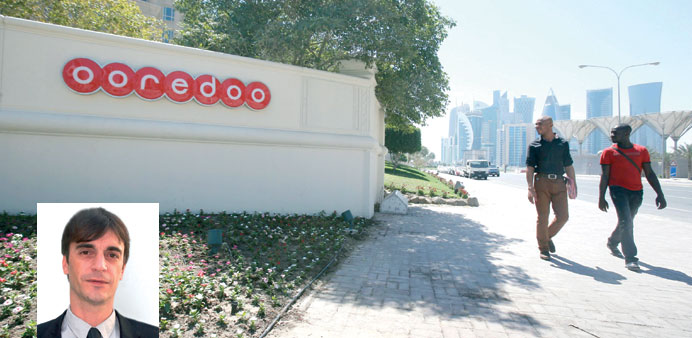The successful bid of Ooredoo (formerly Qatar Telecom) for a mobile phone licence in Myanmar was a great step forward towards closer business relations between Qatar and Southeast Asia in general and with the newly opened ex-pariah nation of Myanmar in particular - and the envisaged investment of up to $15bn into the impoverished nation is simply sensational.
However, nobody said the investment was without risk. With regards to latest developments, Ooredoo will have to balance its strategy carefully towards the religious tensions between Buddhists and Muslims that arose lately. The problem is that anti-Muslim propaganda and even attacks against Muslims, who are thought to make up at least 4% of Myanmar’s population, have thrown the Buddhist-majority nation’s much-hailed emergence from military dictatorship into question through a still prevailing culture of impunity. Buddhist anti-Muslim propagandists have even urged their fellow citizens not to use Ooredoo because it is a service provided by a company from a Muslim country.
Myanmar is suffering from a violent conflict involving the Rohingya minority, with 250 people, most of them Muslims, killed over the past year and 140,000 others fleeing their homes. A radical Buddhist movement in Myanmar, called 969, has been urging followers to boycott Muslim businesses and not to marry, sell property to, hire or work for Muslims, a situation culminating in a provocative July 2013 TIME Magazine cover of a radical Muslim monk and the subsequent ban of the magazine in Myanmar.
The Myanmar government, on the other hand, said that Ooredoo, besides Norway’s Telenor, was the “best choice” for being awarded a mobile phone licence and not to consider public sentiment was a “good thing”. This seems so: Just on August 20, news emerged that Ooredoo plans to hire up to 30,000 local staff in Myanmar and train them exclusively the necessary skills. Nearly 100% of local Ooredoo jobs will be offered to Myanmar nationals, the company added.
The Myanmar government will have to deal with the Buddhist-Muslim problem seriously and end the lack of trust in the justice system as well as laws and practices that discriminate against ethnic minorities, just in order to avoid irrational tensions that also could affect Ooredoo’s roadmap in one or the other way.
It has to be taken into account that Myanmar is still one of the least developed countries in the world and a civil rights mindset hasn’t had time to develop. Over time, it will have to be seen whether Myanmar’s population in its majority will accept prolonged religious intolerance or eventually transform into a modern and liberal society.
Do you think Ooredoo will face problems in its roll-out in Myanmar due to religious tensions? How should the company tackle this issue? Let us know through Twitter: @insideinvestor using hashtag #gulftimes.
*Our columnist Dr Arno Maierbrugger is Editor-in-Chief of www.investvine.com, a news portal owned by Inside Investor focusing on Southeast Asian economic topics as well as trade and investment relations between Asean and the GCC. The views expressed are his own.

